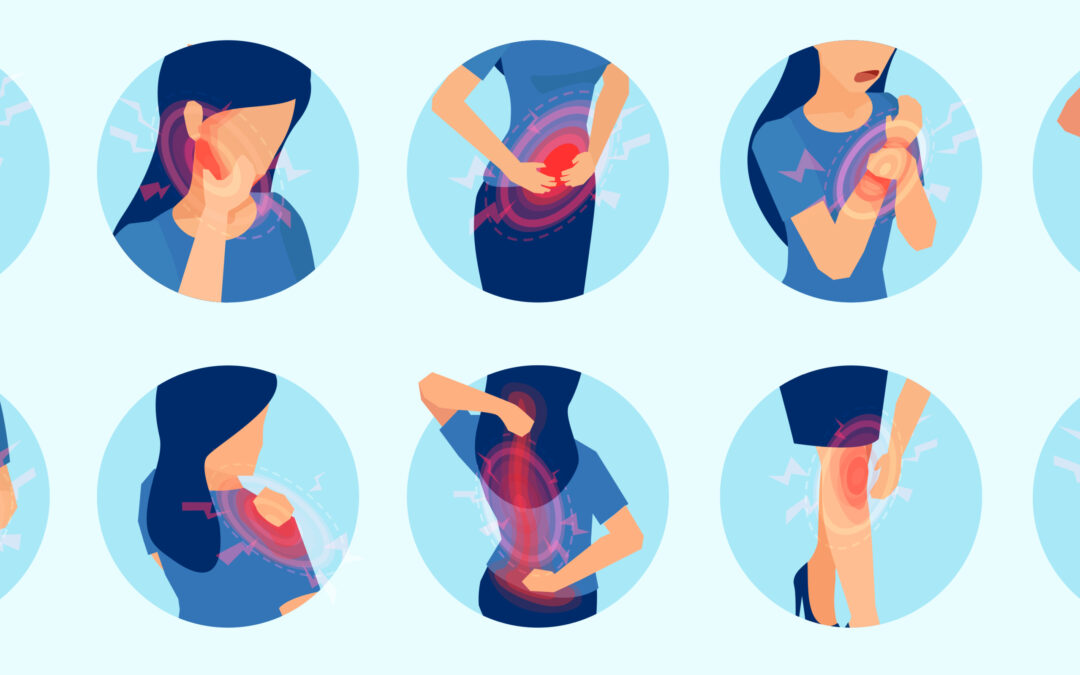Menopause marks a significant hormonal transition, particularly the decline of estrogen and progesterone, which play critical roles in immune regulation. Estrogen, in particular, has immunomodulatory effects—both stimulating and suppressing immune responses depending on context. During menopause, the drop in estrogen levels can lead to increased systemic inflammation and immune dysregulation, potentially triggering or exacerbating autoimmune conditions such as rheumatoid arthritis, lupus, and Hashimoto’s thyroiditis.
Dr. Mary Claire Haver emphasizes that “there are estrogen receptors throughout almost every organ system in your body,” and as levels drop, these cells lose their ability to maintain health across systems including immunity.
This hormonal shift doesn’t just affect immune function—it also impacts musculoskeletal health. Conditions like frozen shoulder and osteoarthritis are more prevalent in menopausal women, likely due to reduced estrogen’s role in maintaining joint flexibility and connective tissue integrity. A 2024 review found that lower estrogen levels increase inflammation and alter connective tissues, making women more susceptible to joint stiffness and pain.
These changes can compound autoimmune symptoms, especially in diseases that already target joints and soft tissues.
Emerging research suggests that GLP-1 receptor agonists—medications like semaglutide and liraglutide—may offer anti-inflammatory benefits beyond their use in diabetes and weight management. These drugs appear to reduce pro-inflammatory cytokines such as TNF-α and IL-6, and may modulate immune responses in conditions like lupus and rheumatoid arthritis.
While data is still evolving, their ability to shift the immune system away from a hyperactive state could make them a promising adjunct therapy for autoimmune conditions that disproportionately affect women.
Dr. Avrum Bluming, co-author of Estrogen Matters, argues that the fear surrounding hormone therapy has deprived many women of effective treatment options. He notes that estrogen has protective effects on heart health, bone density, and cognitive function—benefits that extend to immune resilience.
As we continue to explore the intersection of menopause, inflammation, and autoimmunity, it’s clear that personalized, evidence-based care—including hormone therapy and novel anti-inflammatory agents—can empower women to navigate this life stage with strength and clarity.
📚 References
- Paloma Health. Can Menopause Trigger Autoimmune Conditions?
https://www.palomahealth.com/learn/menopause-trigger-autoimmune-conditions - Healthline. The Link Between Menopause and Frozen Shoulder
https://www.healthline.com/health/frozen-shoulder-menopause - Dr. Sobo. GLP-1 Medications and Inflammation
https://drsobo.com/glp1-inflammation-benefits - Goodreads. The New Menopause by Mary Claire Haver
https://www.goodreads.com/work/quotes/200142710-the-new-menopause[2](https://www.goodreads.com/work/quotes/200142710-the-new-menopause-navigating-your-path-through-hormonal-change-with-pur) - Let’s Talk Menopause Podcast. Estrogen Matters with Dr. Avrum Bluming
https://www.letstalkmenopause.org/podcast-episodes/menopause-medicine-misinformation-with-dr-carol-tavris-dr-avrum-bluming

